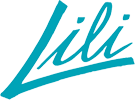Let us start with a test!
What do you see?
7 + 5 = 12 6 + 6 = 12 8 + 5 = 12 9 + 3 = 12
Everyone will say they see mathematical additions that total 12. The vast majority will point out the glaring mistake: 8 + 5 = 13, not 12! And they would be right to do so, but wrong. First, no one will underline the fact that, among four additions, three are correct.
Why pointing out the mistake straight away when it is not representative? Why not highlighting the positive that is so evident?
What if we changed our perspective?
DYS individuals are a STRENGTH and not primarily a mistake to stigmatize…
So, let us be DYS-POSITIVE! (Read also)
Dyslexia is often seen as a handicap, a learning disorder that presents challenges in reading, writing, and understanding. However, it is essential to recognize that dyslexia is first and foremost a strength. Judy Singer, an Australian psychologist and sociologist, speaks instead of neurodiversity and neuroatypical profiles. Indeed, it is more positive to emphasize atypicality rather than the difficulties of DYS disorders because in business, this uniqueness is attractive because it reflects a different way of thinking, often accompanied by exceptional abilities.
What are these abilities?
Dyslexia: Visual and Creative Thinking
One of the major strengths of dyslexia lies in the ability of dyslexic individuals to think visually and creatively. Dyslexic individuals often have a holistic way of thinking, meaning they have an overview and can perceive connections between ideas intuitively. This ability to think nonlinearly can be extremely valuable in fields such as art, design, engineering, and innovation.
Dyslexia: 3D Thinking
Dyslexia offers a superpower: 3D thinking! Dyslexics have an incredible spatial perception that shines in fields like architecture, medicine, and engineering (read here). Their skills to visualize and solve problems in 3D are a major asset. The NASA in the United States often recruits them for this reason. A Canadian study showed that they can process up to 4000 images per second, much more than most people. That is why dyslexics often excel as architects and engineers!
Dyslexia: Intuitive Thinking
Dyslexic individuals often have a highly developed intuition. They can quickly grasp complex information and concepts without needing a detailed explanation. This intuition can be valuable in fields such as decision-making, entrepreneurship, and creativity. Dyslexic individuals can often instinctively detect patterns, trends, or innovative ideas, giving them a unique advantage.
Dyslexia: Resilience and Perseverance
Due to the challenges they face, dyslexic individuals often develop exceptional resilience and perseverance. They must show determination to overcome obstacles and succeed in their studies and careers. This resilience can translate into a never-give-up attitude and an ability to overcome difficulties with perseverance. These traits are invaluable in all areas of life and can lead to remarkable achievements.
Dyslexia: Linguistic Creativity
Although dyslexia may present difficulties in reading and writing, it is also associated with linguistic creativity. Dyslexic individuals can have an inventive use of words, an ability to play with language, and find original ways to express themselves.
Therefore, DYSLEXICS are not a handicap to first consider as an error to correct, but rather an incredible strength that needs to be supported so it can unfold and move mountains!








